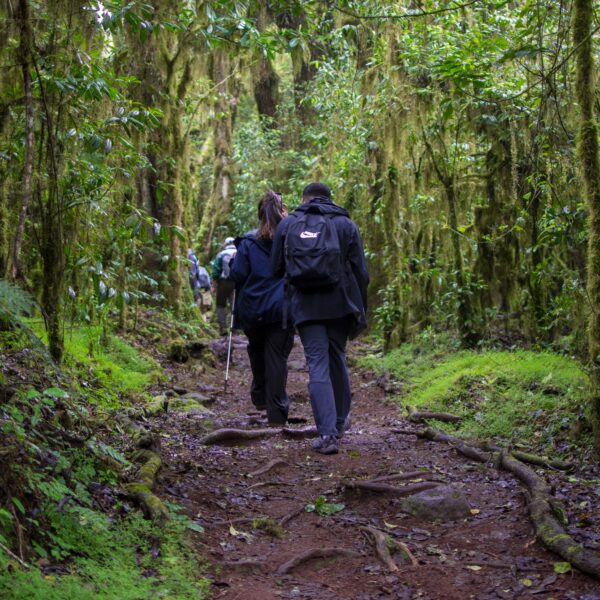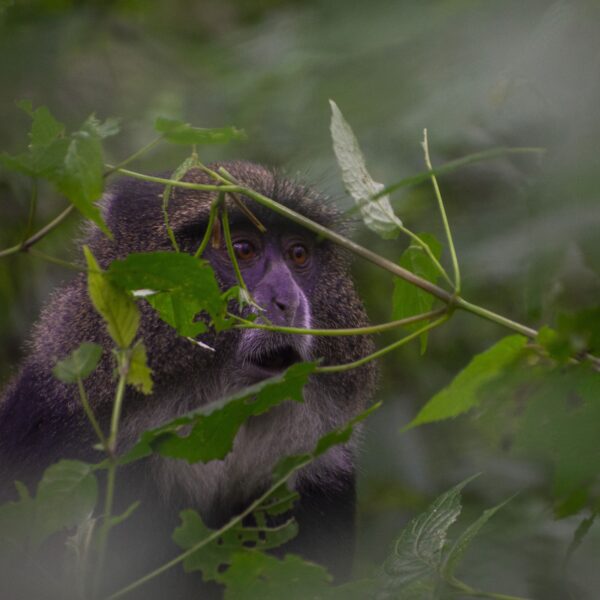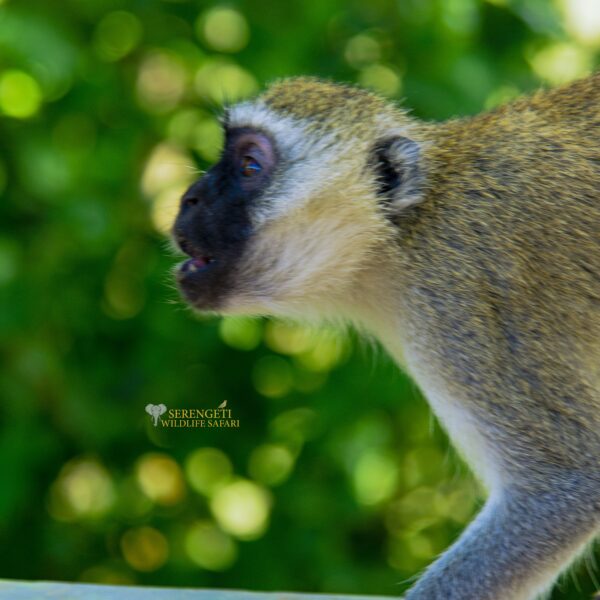Umbwe Route 6-Day Kilimanjaro Climb
From
Duration
Overview
The Umbwe Route is one of the shortest and most challenging paths to the summit of Mount Kilimanjaro, known for its steep terrain and rapid ascent. Despite being more demanding, it is also highly rewarding for those looking for a more intense, adventurous climb. The typical 6-day itinerary allows you to gradually adjust to the increasing altitude, giving you better chances of successfully reaching the summit. While the route is considered challenging, its raw beauty, dramatic landscapes, and the sense of accomplishment from conquering its steep sections make it one of the most sought-after routes for experienced climbers. If you’re looking for a true test of endurance and strength, the Umbwe Route is a perfect choice. Upon arrival at Kilimanjaro International Airport, a Serengeti Wildlife Safaris driver will meet you and transport you to your hotel in Moshi, where you’ll relax and prepare for your upcoming climb. Depending on your arrival time, you can spend the afternoon at leisure before the evening briefing. In the evening, your mountain guide will meet you for a comprehensive pre-climb briefing. This is the perfect opportunity to review the itinerary, ensure that your equipment is in top condition, and ask any last-minute questions. With the logistical details covered and your gear checked, you’ll feel fully prepared to start your climb with confidence and excitement the following morning.
Tour Plan
On Day 1, you’ll start your journey with an early breakfast before your Serengeti Wildlife Safaris team transports you to the Umbwe Gate, the starting point of your climb. The hike from the gate to Umbwe Cave Camp is a 4–5-hour trek through the lush montane rainforest zone. This portion of the climb offers you a stunning introduction to Kilimanjaro’s natural beauty as you walk through dense vegetation, filled with unique flora and fauna. Along the way, you may encounter various bird species and, with luck, even spot some monkeys. When you arrive at Umbwe Cave Camp, you’ll find your team waiting with a prepared camp and tea to help you relax. After a nourishing dinner, you'll rest overnight, ready for the next day's adventure.
Day 2 is a critical day as you ascend further into the heart of Kilimanjaro. From Umbwe Cave Camp, you'll embark on a 6–7-hour trek, passing through varied landscapes as you make your way to Barranco Camp. Along the route, you’ll be treated to panoramic views of the mountain and surrounding valleys. The terrain is tough, but the changing scenery keeps the trek interesting. The highlight of the day is climbing the famous Barranco Wall, a steep, rocky section that requires careful navigation but offers a thrilling challenge. Once at Barranco Camp, located at 3,950 meters, you’ll have time to rest, hydrate, and enjoy a hot meal. The evening provides a perfect opportunity to soak in the view of Kibo Peak as you prepare for another day of climbing.
Day 3 involves a shorter, but still challenging trek, as you ascend from Barranco Camp to Karanga Camp. After breakfast, you’ll begin by navigating the rocky, steep Barranco Wall, which offers a fantastic sense of achievement once you reach the top. From there, the hike continues with several ups and downs across the rugged landscape, providing expansive views of valleys and ridges below. The 6-kilometer journey will take around 3-4 hours, with a gradual rise in altitude as you approach Karanga Camp. Along the way, you'll witness the striking contrasts of the alpine desert and the lush landscapes surrounding you. Upon arrival at Karanga Camp, you’ll have a hearty lunch, followed by time to rest and acclimatize. A peaceful night of rest will prepare you for the final push toward the summit.
On Day 4, you will begin your trek to Barafu Camp, located at 4,673 meters, which is about a 4–5-hour hike. The ascent is gradual, taking you through alpine desert terrain, with views of the expansive, rocky landscape around you. Once you arrive at Barafu Camp, you'll have the opportunity to rest and recharge, as tonight marks the beginning of your summit push. Barafu Camp is a popular stop for climbers preparing for the final summit attempt, and the energy here is palpable. After a light lunch and a few hours of relaxation, the key is to save your energy for the midnight departure. A nutritious dinner will be served early in the evening, and you'll try to get as much rest as possible before the challenging climb to Uhuru Peak that awaits
Day 5 is the most challenging day of the climb. You will wake up in the middle of the night, enjoy a light snack or tea, and begin your summit attempt toward Uhuru Peak, the highest point in Africa. This section of the climb is difficult and involves a steep, strenuous ascent, with freezing temperatures, high winds, and low oxygen levels. But don’t let this discourage you—the goal is within reach! You’ll pass Stella Point at 5,756 meters and then continue the final push to Uhuru Peak, reaching the summit after several hours. The sunrise from the summit is an awe-inspiring reward for your efforts. Once at the top, you’ll take photos to commemorate your success before descending to Barafu Camp for rest and lunch. Afterward, you’ll begin your descent to Mweka Camp.
The final day of your climb takes you from Mweka Camp, located at 3,100 meters, to the Mweka Gate, approximately 10 kilometers away. The descent will take around 2-3 hours through the rainforests, providing a refreshing contrast to the barren alpine zone you’ve just crossed. As you approach the gate, you'll reflect on your incredible journey. Once you reach the gate, you’ll sign out and receive your hard-earned summit certificate. Afterward, your guide will take you to a nearby location for a celebratory lunch with the climbing team. This is a perfect moment to bask in the satisfaction of completing one of the most challenging and rewarding experiences of your life. After lunch, you'll return to your hotel for a well-deserved shower and rest, and prepare for your onward travel.
Included/Exclude
- Airport transfers
- Transfers to/from Kilimanjaro National Park gate
- Experienced guides, cooks, and porters
- Park fees and permits
- Camping/hut accommodation during the climb
- Meals (breakfast, lunch, dinner)
- Boiled drinking water
- Camping equipment (tents, sleeping mats, chairs, tables)
- Rescue fees (Kilimanjaro Search and Rescue)
- Portable oxygen cylinder and first-aid kit
- Fair wages for crew (KPAP standards)
- Summit certificates for successful climbers
- Government taxes and VAT
- Pre/post-climb accommodation in Moshi or Arusha
- Gear rental (e.g., sleeping bags, trekking poles)
- Private portable toilet tent
- International flights
- Visa fees
- Travel Insurance
- Tips for the crew
- Personal expenses (e.g., snacks, drinks, laundry)
- Personal climbing gear (rentals available)
- Accommodation/meals not in the itinerary
- Optional activities before/after the climb



